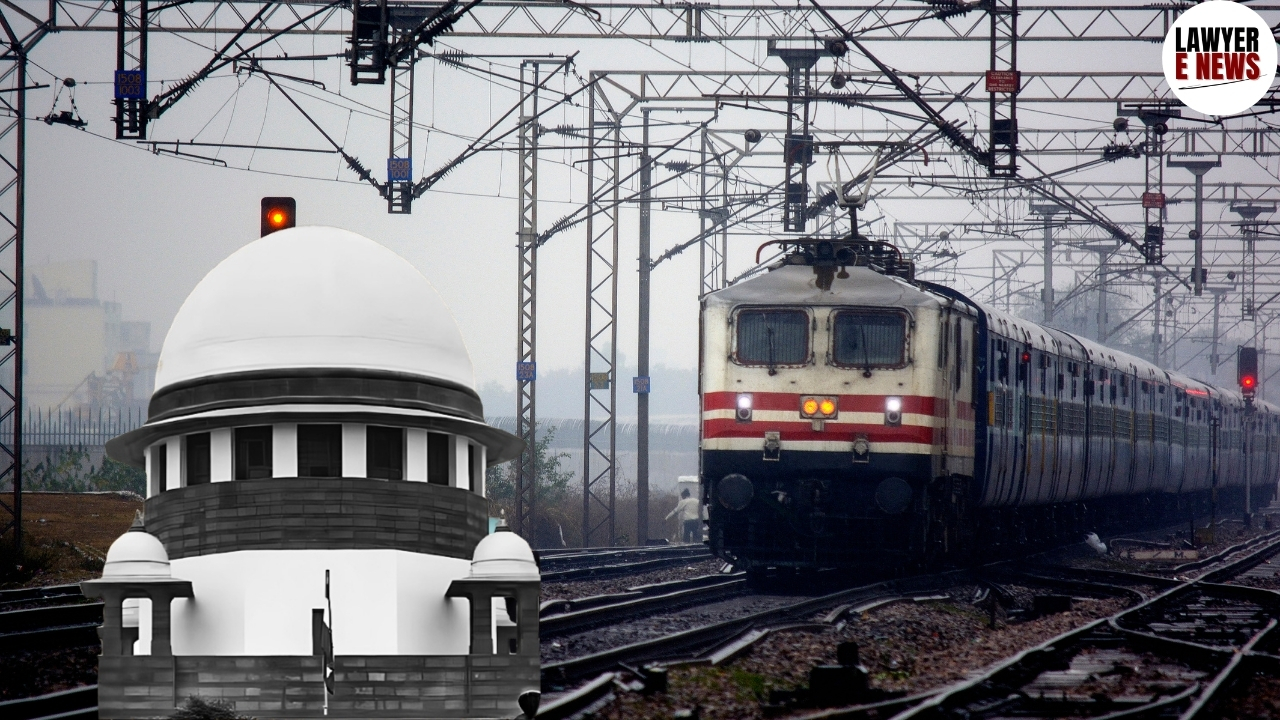-
by Admin
17 February 2026 4:27 AM



“Section 66 does not restrict the levy of penalty only before delivery. Consequently, it can be seen that the legislative intent had to be, to permit levy of charge under this Section, at either stage and not at a specific one.” - On 5th June 2025, the Supreme Court of India deciding a long-contested issue on whether the Railways can impose punitive charges for misdeclared goods even after the goods have been delivered. The Court allowed the appeal filed by the Union of India and reversed the decision of the Gauhati High Court and Railway Claims Tribunal, holding that Section 66 of the Railways Act, 1989, permits imposition of penalty either before or after delivery when there is a misdeclaration of goods. The decision clarifies the scope of the Railways' statutory powers under the Act and settles the controversy around delayed demand notices.
The case had its genesis in four separate consignments transported by Kamakhya Transport Pvt. Ltd. and other logistics companies through Indian Railways. After delivery of the consignments, the Railways issued demand notices in 2011 and 2012 alleging misdeclaration of goods. The respondents, having paid the charges, filed claim petitions before the Railway Claims Tribunal, Guwahati, under Section 16 of the Railway Claims Tribunal Act, 1987, seeking refund on the ground that the demands were illegal since they were raised post-delivery. The Tribunal accepted this argument and directed refund along with 6% interest per annum. This order was upheld by the Gauhati High Court in 2021, which relied on its earlier judgment in Union of India v. Megha Technical & Engineers Pvt. Ltd. and also on the Supreme Court’s decision in Jagjit Cotton Textile Mills v. Chief Commercial Superintendent, N.R., to hold that punitive charges under the Railways Act must be raised prior to delivery of the goods.
The core issue before the Supreme Court was whether the Railway authorities had legal authority to impose penalty charges for misdeclaration of goods under Section 66 of the Railways Act after the goods had already been delivered to the consignee. The appellant (Union of India) argued that the High Court had wrongly treated the case as one of overloading (governed by Section 73), whereas the actual case pertained to misdeclaration which is covered under Section 66. It was contended that Section 66 does not prescribe any time limit or stage at which such penalties must be imposed, and therefore, it covers penalties imposed post-delivery as well.
On the other hand, the respondents maintained that the charges were invalid since they were raised after delivery and that Jagjit Cotton Textile Mills supported their view. They also challenged the authenticity of the demand notices but provided no evidence to prove that the notices were fabricated or procedurally flawed.
The Court held that Section 66 belongs to Chapter IX of the Railways Act and empowers the Railway authorities to collect carriage charges based on accurate classification and declaration of goods. If a false declaration is discovered, the Railway is permitted to charge up to double the highest rate for any class of goods. The provision does not mention any restriction that such charges must be levied before delivery, unlike Sections 73 and 78, which specifically pertain to overloading and reclassification and clearly state that action must be taken “before the delivery” of goods. The Court observed that the legislative intent was to grant the Railway administration flexibility to recover dues even post-delivery in cases of false declaration, a key regulatory mechanism to prevent misuse of freight charges.
The Court rejected the High Court's application of Jagjit Cotton Textile, pointing out that it pertained to conditions under Section 54 of the Act related to overloading and not misdeclaration. It clarified that the sentence from Jagjit — “penal charges could be collected before delivering the goods” — was only illustrative and not a mandatory condition. The facts of the present case fell squarely within the ambit of Section 66, and not Sections 73, 74, or 78. Therefore, the reasoning of the High Court was held to be misplaced.
The demand notices, which were produced on record, indicated that the penalties were imposed specifically for misdeclaration and not overloading. Since the respondents failed to bring any evidence disputing the genuineness of these notices, the Court found no merit in their claims of procedural impropriety.
Justice Sanjay Karol, writing for the bench, laid emphasis on the plain language of Section 66, observing that it deliberately does not specify a temporal limitation like Sections 73 and 78. The Court emphasized that allowing the Railways to recover charges for misdeclared goods even after delivery aligns with the legislative objective of deterring fraudulent declarations and preserving the financial integrity of public transportation services.
The Court decisively overruled the High Court's interpretation that penal charges could only be imposed before delivery and set aside the impugned order dated 20th December 2021 passed by the Gauhati High Court in MFA Nos. 80 of 2016, 57 of 2016, 29 of 2017, and 28 of 2017. The Railway Claims Tribunal’s direction to refund the penal amounts was also quashed. The civil appeals were accordingly allowed.
The Court concluded: “In view of the above, the impugned order dated 20th December, 2021 passed by the Gauhati High Court is hereby set aside. In the attending facts and circumstances of this case, the civil appeals are allowed.”
The Supreme Court’s decision in Union of India v. M/s Kamakhya Transport Pvt. Ltd. & Others reaffirms the power of the Indian Railways to penalize parties for misdeclaration of goods even after delivery has occurred. It clarifies the independent scope of Section 66 of the Railways Act, detaching it from procedural restrictions found in other penalty provisions like Section 73. The ruling provides much-needed interpretative clarity and equips the Railways with greater legal strength to tackle freight misclassification — a problem with significant revenue implications.
Date of Decision: 5th June 2025
